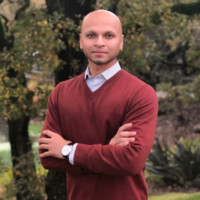
Most InsurTech startups seek out venture capital to help fuel their initial development goals. Omnidya is turning to a crowdfunding campaign to raise money.
Omnidya’s Founder and CEO Kumar Patel is taking a slightly different route. He’s focused on raising initial funding at Fundable, a fundraising website designed to help startups reach backers to raise capital quickly.
“We are a stand-alone, direct-to-consumer auto insurance company with a unique approach that needs capital to enter the marketplace.” Patel explained to Carrier Management Editor Mark Hollmer via an email Q&A. “Therefore, we decided to opt for crowdsourcing for capital to get us in the marketplace and demand a higher valuation for our institutional round.”
The MGA describes itself in its Fundable pitch as providing “hyper-personalized car insurance by leveraging AI and IoT devices to measure driving performance with next-level insights.”
Right now the company has seven employees based in the U.S., supported by an offshore team. Once funding is completed, plans are to hire 5-7 more people.
Omnidya has not launched its signature product yet but Patel said it has been tested “with various end-users.” Plans are for the company to go live between June and July of this year.
Below, Patel explains the company’s crowdfunding approach and goals in detail.
Q: Startups often turn to bootstrapping or venture capital to raise money. Why did you turn to crowdsourcing?
Patel: At Omnidya, we have focused on creating proprietary tech we believe will change the insurance industry for decades to come. We have bootstrapped the company without the help of any institutional funding to develop our MVP. Instead, we used this limited funding to deploy creative strategies to create an entirely new way to analyze risk. We approached several “early stage” venture capital firms before launching on Fundable, but either, we got terms that were outrageous or [were told to] “get back to us later.” We are not like other insurance platforms where we can go live and serve as a lead generation platform for other companies. We are a stand-alone, direct-to-consumer auto insurance company with a unique approach that needs capital to enter the marketplace. Therefore, we decided to opt for crowdsourcing for capital to get us in the marketplace and demand a higher valuation for our institutional round.
Q: Is there precedent for this kind of startup fundraising?
Patel: Not per se, but we are in dire need of capital. As a founder, I have to keep trying, and who knows, we can create our own precedent. I acknowledge the path in front of us is tough, but when you believe in the product you have created, one does not have an option besides exploring different avenues.
Q: How much do you hope to raise this way?
Patel: Our goal is to raise $2million. Getting to $2 million would enable us to get into the marketplace and help with addressing compliance in several other states we intend to launch in, thus providing us with a more extensive market opportunity.
Q: Will you continue to turn to crowdsourcing during your company’s development, or other venues like venture capital in the months ahead?
Patel: Our primary focus at this moment is getting $2 million as early as possible. I cannot speak to the future as the market condition and trends at that given time will dictate formulating a strategy for the subsequent funding round.
Q: Why do you see your company attracting investment interest in a crowdsourcing environment?
Patel: We have a unique offering that distinctively differentiates us from other companies in the insurance industry. For example, we have created a model that focuses on risk avoidance rather than risk mitigation to help eliminate fraud in the industry. Additionally, with the successful IPO of Lemonade and Root Insurance, people understand what InsurTechs are. Therefore, I believe that angel investors will take a good look at what we have to offer.
Q: What kind of investors do you hope to attract?
Patel: Given the successful IPO of Lemonade and Root Insurance, we are hoping to attract angel investors who missed out on those but are looking for the next big thing in the InsurTech world.
Q: What are your company’s long-range plans?
Patel: Our goal is to eliminate fraud in the auto insurance industry and introduce multiple automation processes to reduce the cost for the end-user and increase the company’s profitability. Additionally, as driver automation becomes more mainstream, insurance models will have to adapt to the change. I assure you Omnidya will be at the forefront to capitalize on the opportunity.
Q: Why should the insurance industry care about your company?
Patel: We addressed one of the most significant issues in the industry, which is fraud. Furthermore, we have automated business processes that boost the company’s efficiency and provide better customer service. Omnidya’s unique approach will set the new standards for an insurance company in the next five years.





















 State Farm Mutual to Pay $5B Dividend to Auto Insurance Customers
State Farm Mutual to Pay $5B Dividend to Auto Insurance Customers  10 Do’s and Don’ts of a Smart ORSA Report
10 Do’s and Don’ts of a Smart ORSA Report  Machine Learning for Mutuals: What’s Working, What’s Not, and What’s Next
Machine Learning for Mutuals: What’s Working, What’s Not, and What’s Next  Premium Slowdown, Inflation Factors to Lead to Higher P/C Combined Ratio: AM Best
Premium Slowdown, Inflation Factors to Lead to Higher P/C Combined Ratio: AM Best 


